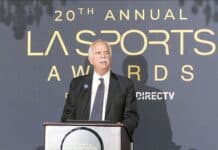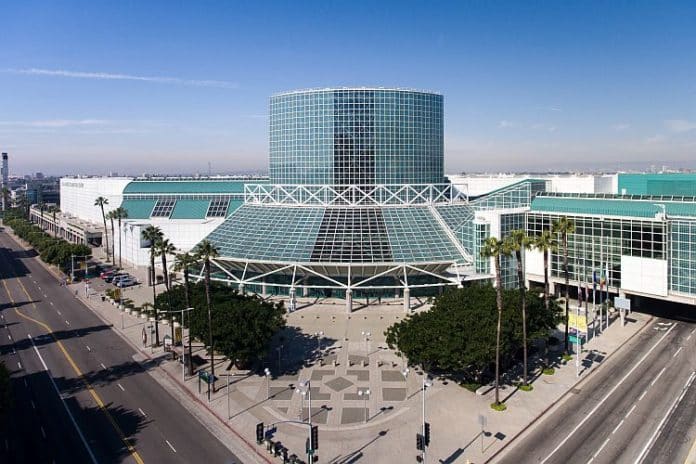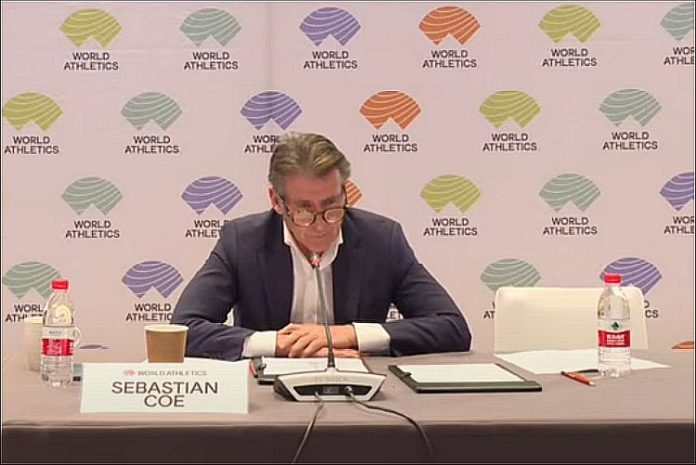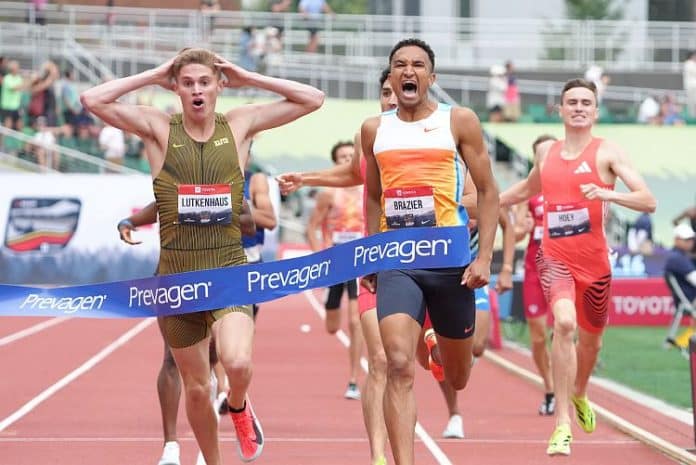★ The Sports Examiner: Chronicling the key competitive, economic and political forces shaping elite sport and the Olympic Movement.★
★ To get the daily Sports Examiner Recap by e-mail: sign up here! ★
≡ L.A. CONVENTION CENTER ≡
The City of Los Angeles wants to expand its Convention Center, opened in 1971, used as the Main Press Center for the 1984 Olympic Games and expanded in 1993, but has spent years discussing what to do, how to do it and who will do what.
In the meantime, the LA28 Olympic and Paralympic organizers have identified the Convention Center for Olympic fencing, judo, table tennis, taekwondo, wrestling, and Paralympic boccia, para judo, para table tennis, para taekwondo and wheelchair fencing.
On Tuesday, the L.A. City Council’s finance committee held a special hearing to vote on whether to advance the project for a yes-or-no vote to the full City Council.
No vote was taken.
Instead, the committee, chaired by Council member Katy Yaroslavsky, spent 90 minutes listening to mostly supportive public comments and a lengthy report from City Administrative Officer Matthew Szabo.
There is considerable worry about the cost of the project, but also whether it will crater the use of the Convention Center for the Olympic Games. Szabo explained:
“What we’re asking for today is a decision whether to proceed or whether to terminate [the project.]
“The schedule dictates that we must achieve commercial close by the end of September, meaning that this committee must make a determination today, and the full Council must act in the very near future if there is going to be any chance of making the ‘Olympic readiness’ deadline.
“If you decide not to proceed with the project at this time, the CAO recommends terminating the project and reevaluating the entire effort.
“This is an extraordinarily expensive and complicated project which has been nearly a 100% construction cost increase since 2020. And just as a reminder, in February of 2020 – and I am not talking about overall costs, I am talking about just the construction costs of the expansion as designed – in February of 2020, the estimated construction cost was $1.1 billion.
“By November of 2023, that construction cost increased to $1.4 billion, and that construction cost is over $2 billion today.”
The “Olympic readiness” date is very real for the City. It is set at 31 March 2028, for the expansion effort – if approved – to be stopped and access restored to specific areas of the Convention Center to allow the LA28 organizers to take possession of the facility on 1 June 2028, install the needed equipment, bleachers and so on, in order to stage the Olympic Games events beginning on 15 July. The project would finish after the Paralympic Games closes on 27 August 2028.
Said Szabo:
“It would be beyond significantly bad, it would be catastrophic to the Olympic planning effort if they would need to pull out of the Convention Center as a venue. The Convention Center is a venue for a number of events itself, it is also a warm-up area for gymnastics.
“That effort is fully underway, assuming the Convention Center as a venue; they will be engaging in ticket sales, sponsorships, etc., and it would be extraordinarily disruptive if – at this late date – there would need to be a change.”
Szabo’s written analysis of 22 August to the Council went further, noting:
“The City and LA28 are negotiating a Venue Use Agreement (VUA) for the LACC, which will be the legally binding contract that outlines the terms and conditions of LA28’s use of the LACC during the 2028 Games. Should the LACC be unavailable for LA28’s use as a result of Project delays after the City and LA28 enter into the VUA, the City would likely be in breach of contract, which could expose the City to significant liabilities as LA28 would be entitled to remedies and damages.”
The City committed the Convention Center – as it is today – for use for the Games back during the bid phase in 2017.
The total cost of the expansion presented by Szabo, as of today, is $2.72 billion, with $2.04 billion in construction costs and $566 million in contingencies held by the City. Bonds would be sold to pay for all of this, with Szabo saying the deal needs to close by 29 September for the schedule to be met. Serious questions have also been raised about revenue projections and whether state law amendments to allow giant ad signage panels to be installed will be passed.
The City Chief Legislative Analyst, Sharon Tso, wrote in a 29 August memo:
“Our Office has serious concerns about proceeding with the Project as presented. The cost required to accelerate construction for the 2028 Games is estimated to have an acute negative·impact on the General Fund through 2056. Crucial issues remain unresolved, and tangible risk remains due to the shortened construction timeline, minimized delay contingency, lack of resolution on major aspects of the revenue program, and the risk to City assets by the uncommon bond financing structure. Council should consider the cost, revenue uncertainty, liabilities,. and the City’s overall fiscal status when analyzing this significant decision.”
Tso will testify before the Finance Committee next week (16th), where – once again – a recommendation to the full Council will be needed.
Everyone agrees that the expansion is worth doing, but at what cost and – due to the 2028 Games – when?
¶
★ Receive our exclusive, weekday TSX Recap by e-mail by clicking here.
★ Sign up a friend to receive the TSX Recap by clicking here.
★ Please consider a donation here to keep this site going.
For our updated, 699-event International Sports Calendar for 2025, 2026 and beyond, by date and by sport, click here!



























